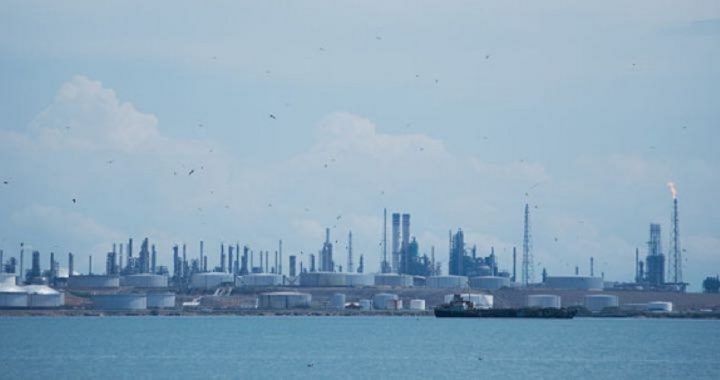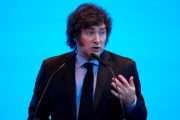
As Venezuela’s creditors are gathering to discuss how they may best protect their interests, additional pressure from former head of the country’s state-owned oil company, PdVSA, was applied on Saturday. Rafael Ramirez, the former head of the company under Chavez and Maduro, barely escaped with his life when Maduro arrested the top officials at the company last year for “engaging in corruption.” Maduro replaced Ramirez with Major General Manuel Quevedo, who is succeeding in even more rapidly running into the ground the once-prosperous and highly profitable energy producer.
In an 80-minute telephone call from an undisclosed location, Ramirez told Gulf News that oil production from his former company, already cut in half thanks to Maduro’s decisions and the company’s lack of capital to maintain it, will decline even further this year. He estimates that daily oil production, at barely 1.4 million barrels a day (down from 3.5 million a few years ago), will decline by 600,000 barrels this year. Ramirez claimed that the corruption charges were phony — that they were an attempt to increase Maduro’s hold over the company by his military.
There are so many creditors — banks, bond investors, international oil companies, and governments such as China, Russia and Cuba — that have helped fund Maduro’s socialist experiment that Nick Cunningham (a journalist at OilPrice.com who has been following Venezuela’s decline for years) asked an attorney skilled in such matters to help in sorting it all out. Jay Auslander, recognized for his work in enforcing judgments and in litigating debt defaults, did his best. Aside from standing aside and letting the socialist regime collapse by itself or with outside help, “the other thing creditors can do is … declare defaults.… We’re going to have a sort of cascade of creditors [who will] declare defaults … and get judgments.”
With judgments in hand, creditors then can go after assets.
Maduro has pledged everything in order to obtain the financing he needs to keep his corrupt and disintegrating government operating: Oil reserves have been pledged to China and Russia, company assets have been pledged to bond holders, even oil tankers moving product to refiners in the United States and elsewhere have been pledged. As Auslander explained:
What you could end up with is this cascade of investors vying over different positions seeing who comes first while pursuing the assets that are outside the country.
But, added Auslander, Maduro won’t take this lying down. PdVSA is his only oxygen hose, and he will claim that the creditors don’t have a valid claim, or that since his oil company is part of his government, it is exempt from seizure by creditors.
When Cunningham asked Auslander, “So, then, how do creditors get paid?” he responded:
There’s not going to be any easy answer to that. I think ultimately creditors — to the extent that these defaults continue to mount — are going to say they don’t have a choice. They are going to act together and say: ‘Look, we bought these bonds, we bought these instruments, we put the money in and we are entitled to get that money [out]. We want that money.’
And they’re going to go ahead and do it [seize PdVSA assets].
That will be the death knell for Nicolas Maduro and his mad Marxist regime that has brought so much suffering to the citizens of this once-prosperous country. At the moment Maduro owes $150 billion to lenders, international oil companies, banks, and governments around the world, and he has an estimated $9 billion in specie. As Auslander said, “That’s not a pretty picture.”
The only creditor unconcerned about being paid is the international banking firm Goldman Sachs. Last year it saw an opportunity to buy some $2.8 billion worth of Maduro’s bonds at an estimated 70 percent discount. Outrage ensued, with many critics calling them “hunger bonds” or “suffering bonds,” as they effectively extended the life of Maduro’s regime. Even though Maduro hasn’t made payments due on $50 billion worth of debt since late last year, he did manage to make a $90 million interest payment to Goldman.
When the Wall Street Journal asked Goldman Sachs about the payment it received when Maduro’s other creditors were being stiffed, the banking firm had “no comment.”
An Ivy League graduate and former investment advisor, Bob is a regular contributor to The New American magazine and blogs frequently at LightFromTheRight.com, primarily on economics and politics. He can be reached at [email protected].
Photo of a Venezuelan oil refinery: Génesis García
Related article:
Starvation, Suicides Increasing Under Venezuela’s Hyperinflation



